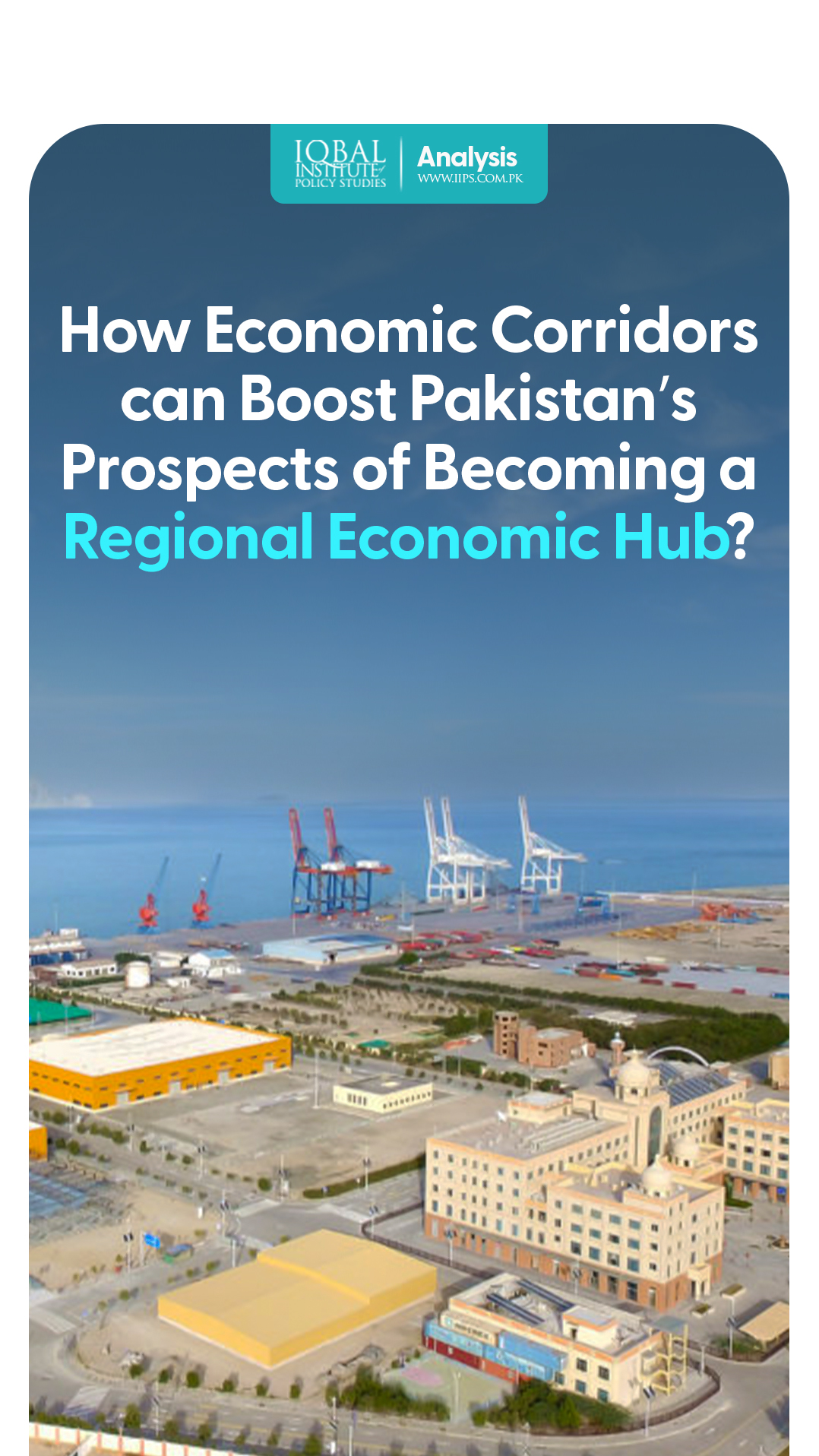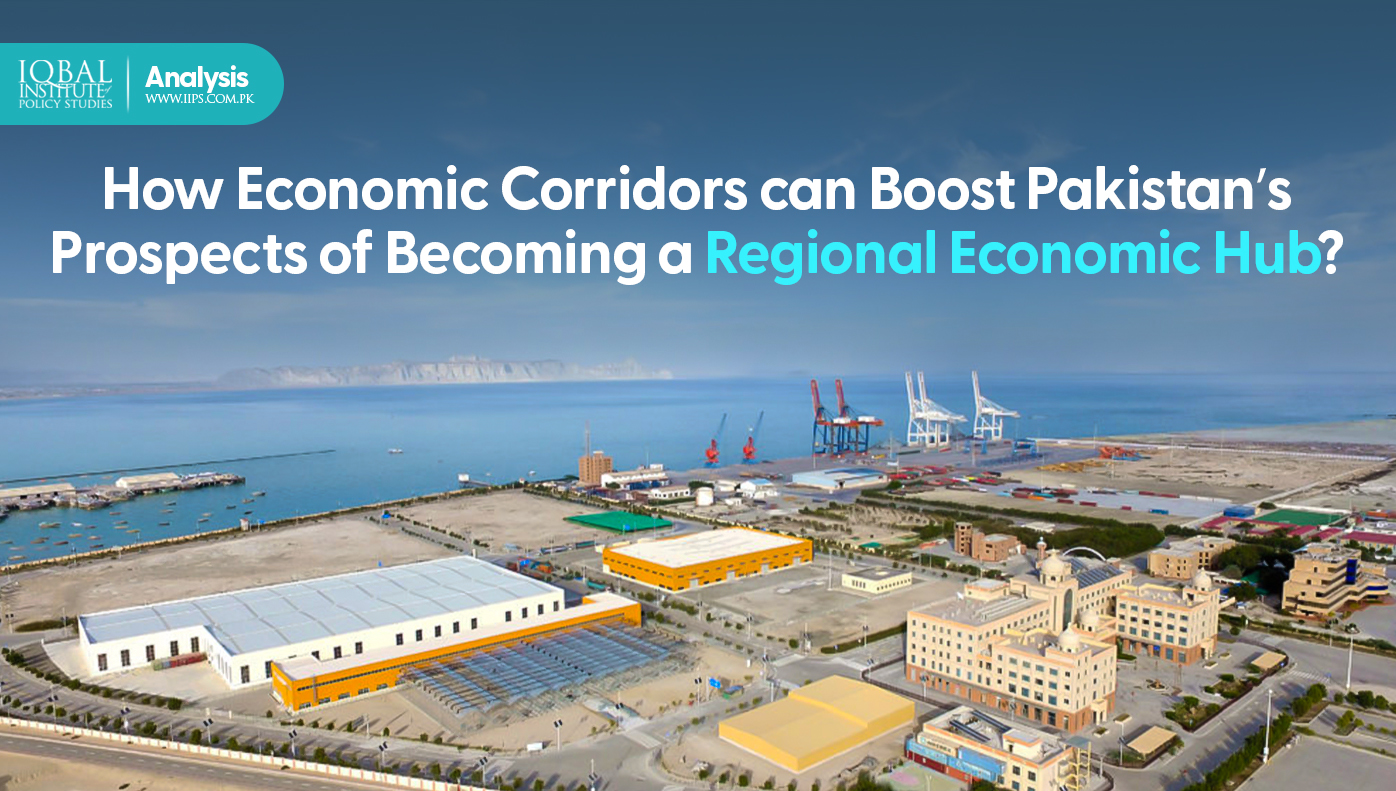With around 229 million people and a strategic location at the crossroads of South, Central, and West Asia, Pakistan has the potential to become a regional economic hub for international transit and trade. However, much effort must be made to foster the economic stability and sustained growth that Pakistan needs to realise this potential.
To become a regional economic hub, Pakistan needs to develop economic corridors. These corridors describe geographic areas with modern transport and trade infrastructure, facilities, and policies that spur economic activity within the country and its neighbours. They involve infrastructure, industrial and urban developments, and provide ground for investments and opportunities that will result in more economic activity, jobs and faster movement of people and goods.
Developing economic corridors in Pakistan requires strong structural reforms in critical areas including rationalising regulations and taxes for businesses and improving trade facilitation and logistics, which are crucial to unleashing the country’s economic growth. With progress in these areas, more investments in people improved labour markets and financial inclusion, some other targeted interventions can help Pakistan build out its economic corridors.
These targeted interventions are:
- Infrastructure development
- Industrial development
- Urban development
Good infrastructure is crucial for economic corridor development. Efficient multichannel transport networks, including roads, railways, and ports, connect urban centres to domestic and international markets, encourage travel, and enhance trade. However, Pakistan has heavily invested in seaports, motorways, and other physical infrastructures. Still, it lacks a comprehensive regulatory system to speed up the flow of goods into and out of the country. It is essential to simplify customs and border crossing procedures, providing ease of international trade. In this context, Pakistan has already developed a digital platform, Pakistan Single Window, which will connect all stakeholders and enable document processing through a single digital platform.
Clustering industries in strategic areas is a vital element of economic corridors. To thrive, the industry needs an investment-friendly environment and a skilled workforce. Pakistan can incentivise such growth through tax incentives or other mechanisms. Through industrial development, Pakistan can become a more significant competitor in international trade.
Urban development is vital to the success of economic corridors as it is an important source of labour, goods, and innovation. Pakistan should focus on improving its cities’ livability and providing access to quality public services such as affordable housing, reliable water supply and other public services. This will create jobs and livelihood opportunities and improve people’s health and well-being.
If CPEC is implemented successfully, it can pull off several economic objectives. However, it is also a fact that CPEC alone can not make Pakistan an economic hub; the private sector also has a crucial role to play which can be encouraged through structural reforms.
For developing economic corridors, Pakistan should enhance its partnership with development partners and other countries to gain the technical and financial support needed to help the country realise its tremendous economic potential.



Leave a Reply